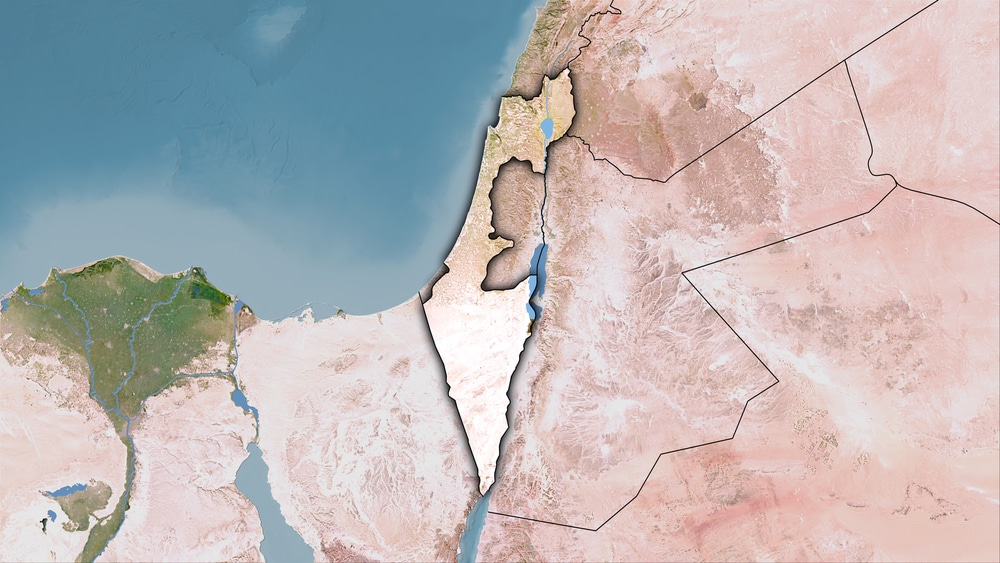In the weeks since 2,500 Hamas militants went on a murder and kidnapping rampage in southern Israel, a wave of pro-Palestinian demonstrations has erupted across the United States and around the world. These displays have only grown in size and number as Israel’s military responds by punishing the entire, densely-packed population of Gaza with a blockade on food, water and medicine, a devastating bombing campaign and now a ground invasion.
While no mass protest is free of people with bigotry and amoral stances, proponents of Israel have been far too quick to accuse pro-Palestinian protesters of antisemitism. One of the most common of such false accusations rests on a false premise—namely, that it’s inherently antisemitic or genocidal to question Israel’s “right to exist.”
That premise is false for a number of reasons, the most salient of which is this: No country has a “right to exist.”
After all, what is a country—or, in more precise terminology, a state—other than a political arrangement? And why would any political arrangement be deemed as having “rights,” much less a supposed right to never be altered or cancelled?
While definitions vary, Murray Rothbard best distilled the state in his classic long essay, “Anatomy of the State.” Rothbard wrote: “The state is that organization in society which attempts to maintain a monopoly of the use of force and violence in a given territorial area.”
Whether the associated flag of the state in question has a Star of David, stars and stripes, or a hammer and sickle, the suggestion that it’s immoral to propose that such a monopoly be rearranged or replaced is preposterous on its face. Over the broad sweep of history, the norm is not states existing in perpetuity. Rather, history is the story of never-ending rearrangements of these many monopolies on the use of force and violence.
Did the Soviet Union have a “right to exist”? What about Yugoslavia, Czechoslovakia or the Ottoman Empire? Are we all culpably-silent bystanders to some kind of ongoing injustice as long as those bygone states are not reconstituted?
Rather than having a right to exist, each state—from Israel to Ukraine to the United States—must have permission to exist. As expressed in the Declaration of Independence, “Governments are instituted among men, deriving their just powers from the consent of the governed.”
To embrace that fundamental principle is to acknowledge that the State of Israel—a political entity—can only justly continue imposing its monopoly on the use of force and violence if it has the consent of those it governs.
And who does Israel govern? For all the talk of a two-state solution, and maps depicting the West Bank and Gaza as something somehow separate, the fact is that the State of Israel rules everything “between the river and the sea,” to invoke a contentious phrase we’ll revisit shortly.































